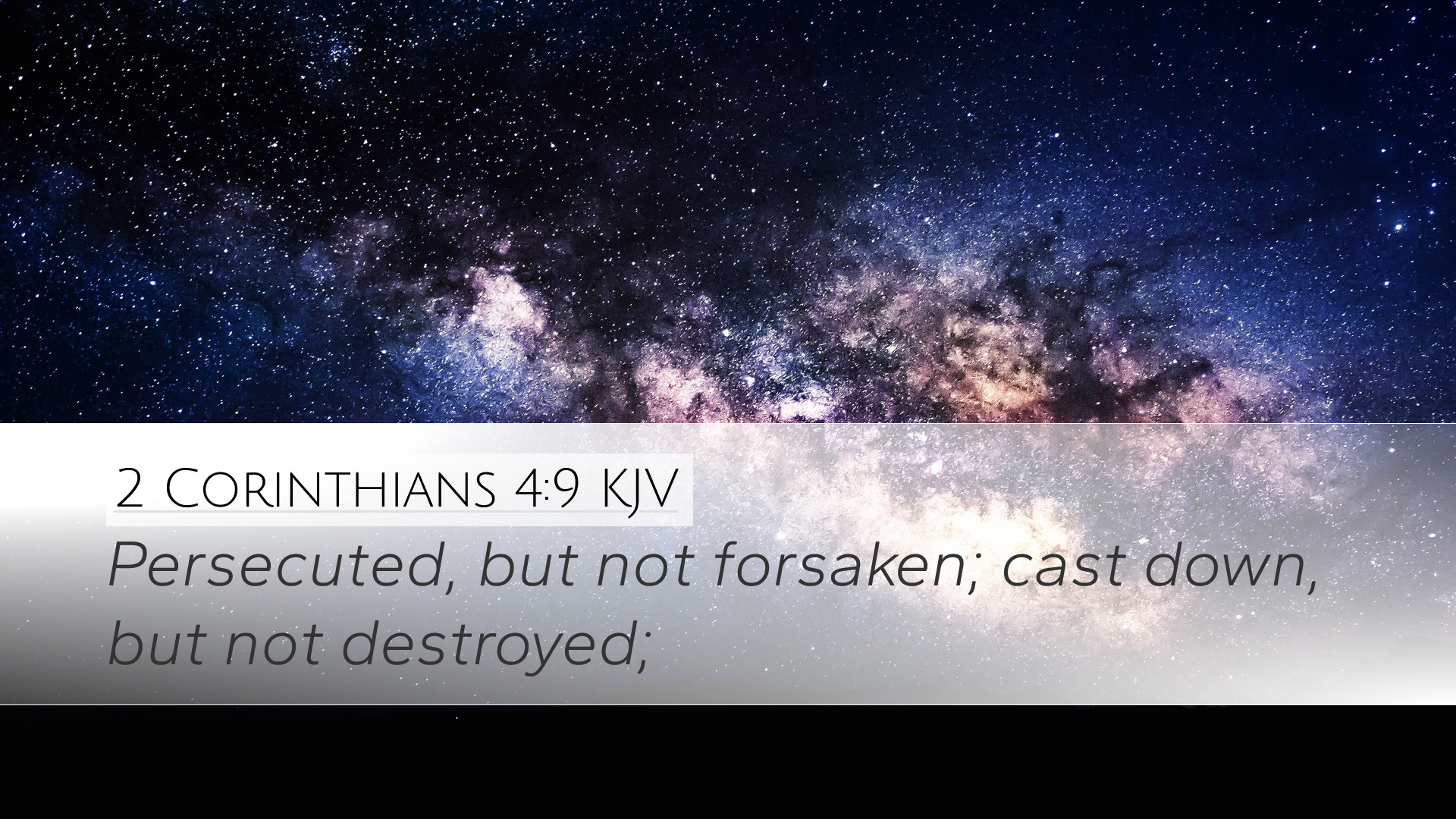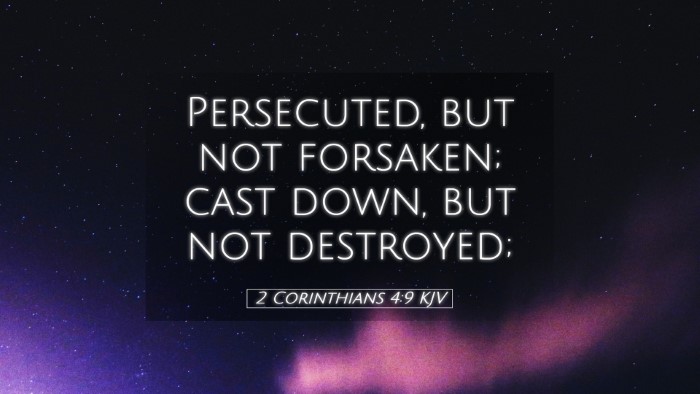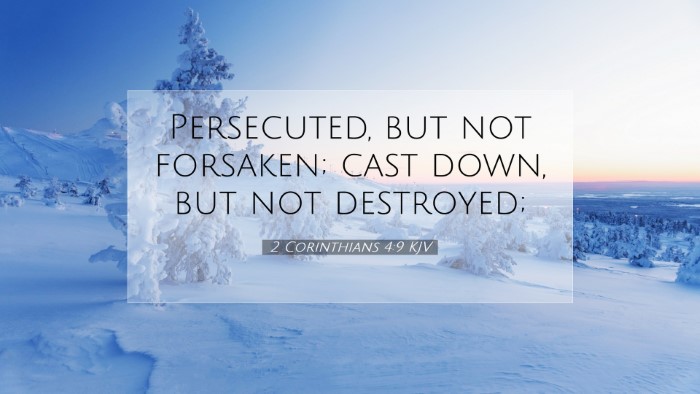Commentary on 2 Corinthians 4:9
Bible Verse: "Persecuted, but not forsaken; cast down, but not destroyed."
Overview
In 2 Corinthians 4:9, the Apostle Paul encapsulates a powerful dichotomy of the Christian experience: the trials faced by believers contrasted with the enduring support of God. This verse is part of a larger discussion about the nature of Christian ministry and suffering.
The Context of the Verse
In this chapter, Paul defends his ministry and clarifies the hardships endured for the sake of the Gospel. He speaks of the “treasure” of the Gospel contained in “earthen vessels” (2 Corinthians 4:7), highlighting human frailty yet divine strength. The juxtaposition in verse 9 serves to reinforce the theme of resilience in the face of adversity.
Persecuted, but Not Forsaken
Matthew Henry: Henry interprets "persecuted" as the external afflictions that believers may encounter by virtue of their faith. These persecutions can come in many forms, including social ostracism, physical harm, or even legal repercussions. However, he emphasizes the promise that though the faithful may experience abandonment by others, they are not forsaken by God.
Albert Barnes: Barnes expands on the idea of being “forsaken.” He notes that while Paul was persistently pursued and harassed by adversaries, God’s presence with him provided continuous comfort and strength. This reflects a profound theological truth: divine companionship supersedes human rejection.
Adam Clarke: Clarke adds that the assurance of not being forsaken carries immense significance for believers. He explains that God's faithfulness is a direct counteraction to the sense of isolation that arises during persecution. Thus, believers are encouraged to find strength in God's unfailing support during trials.
Cast Down, but Not Destroyed
The phrase "cast down" connotes defeat, suggesting that believers may indeed experience painful setbacks. Yet, Paul assures his readers that despite being thrown into circumstances of deep distress, such experiences are not the end.
Matthew Henry: He interprets “cast down” as a state of being humbled or made low, often through trials. Yet he emphasizes the hope embedded in the affirming phrase “not destroyed,” highlighting the sustaining grace of God that upholds the believer even in dire situations.
Albert Barnes: Barnes asserts that “not destroyed” speaks to the resilience inherent in the Christian faith. He contends that while physical suffering may be permissible, ultimately, believers are preserved through the spiritual fortitude provided by their relationship with Christ.
Adam Clarke: Clarke insists on the importance of this phrase, noting that being "cast down" might refer to the emotional and spiritual strife that often accompanies persecution; nevertheless, the believer’s spirit remains intact because of God’s intervention and protection.
Interpretation and Application
The primary takeaway from this verse is the assurance of God's unwavering presence in the life of the believer, especially during trials and tribulations. Christian leaders can draw profound theological and practical implications from Paul’s articulation of struggle and strength.
Implications for Pastors and Leaders
- Encouragement: Pastors should remind congregants of God’s continual support, particularly during trials, as a crucial aspect of pastoral care.
- Resilience in Ministry: Leaders should train to develop resilience, understanding that hardships are part of the ministry journey but that they do not define a minister's effectiveness or God's ultimate purpose.
- Hope in Opposition: Believers and leaders alike can find strength in knowing that opposition often accompanies the Christian walk; it is a testament to the transformative power of the Gospel.
Implications for Students and Scholars
- Understanding Context: Students of theology should delve into the historical background of Paul’s letters to fully grasp the magnitude of his claims and experiences.
- Theological Reflection: Scholars are encouraged to reflect on the theological dimensions of suffering within the Christian tradition, considering how this verse aligns with the broader biblical narrative on perseverance.
- Encouragement for Research: The juxtaposition of suffering and divine support can be an important field of research, leading to deeper discussions on theodicy and the nature of God’s promises amidst human pain.
Conclusion
2 Corinthians 4:9 is a profound declaration that encapsulates the essence of the Christian journey. It speaks to the painful realities of persecution while simultaneously affirming God’s unyielding presence and support. For pastors, students, and theologians alike, this scripture serves as a vital reminder of the resilience provided by faith and the assurance that, in every trial faced, one is never truly alone. Embracing the paradox of being "persecuted, but not forsaken; cast down, but not destroyed," lays a foundation for a resilient faith in the face of life’s adversities.


